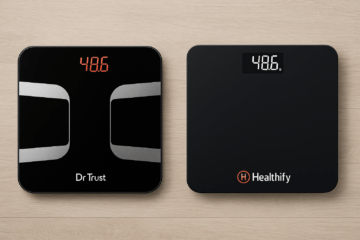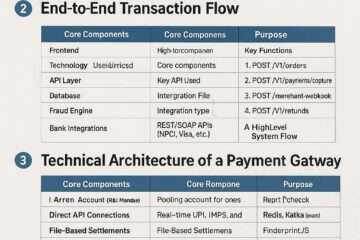

Why Protein is Essential for Runners
For runners and marathoners, proper nutrition is crucial for peak performance, muscle recovery, and injury prevention. While carbohydrates are often the primary fuel for endurance athletes, protein plays a vital role in muscle repair, endurance, and overall strength. Whether you’re training for a casual run or an intense marathon, incorporating enough protein into your diet can significantly enhance your performance.
The Role of Protein in Running Performance
Running places immense stress on muscles, tendons, and ligaments, leading to microscopic tears that require repair. Protein provides essential amino acids, which help rebuild and strengthen muscle tissue, supporting faster recovery and improved endurance.
Marathoners, who train for extended periods, need protein even more. Prolonged exercise depletes glycogen stores, forcing the body to use muscle protein for energy. Sufficient protein intake helps prevent muscle breakdown, ensuring runners maintain their strength and stamina throughout their training.
Scientific Insights: Protein’s Impact on Runners
Studies have consistently shown that protein plays a critical role in athletic performance. A 2018 study in the Journal of the International Society of Sports Nutrition found that endurance athletes consuming 1.2–2.0 grams of protein per kilogram of body weight daily experienced better muscle recovery and reduced fatigue compared to those with lower protein intake.
For a 150-pound (68 kg) runner, this equates to approximately 82–136 grams of protein per day, well above the general recommendation for non-athletes (0.8 g/kg).
Additionally, amino acids like leucine, found in high-quality protein sources, help trigger muscle protein synthesis, aiding in faster post-run recovery.
Benefits of a Protein-Rich Diet for Runners
1. Muscle Repair and Recovery
Protein accelerates muscle repair after intense runs, reducing soreness and downtime. Consistent protein intake allows marathoners to maintain high mileage without excessive fatigue.
2. Injury Prevention
Strong muscles, tendons, and ligaments reduce the risk of strains and tears. Protein supports connective tissue health, crucial for runners who endure repetitive impact on their joints.
3. Sustained Energy and Endurance
While carbohydrates provide quick energy, protein helps stabilize blood sugar levels and prevents muscle breakdown during long-distance runs. This is particularly beneficial for marathoners when glycogen stores are depleted in the later stages of a race.
4. Immune System Support
Intense training can weaken the immune system, making runners more susceptible to illness. Protein-rich foods, especially those containing zinc (found in meat and legumes), help strengthen immunity.
5. Weight Management and Lean Muscle Maintenance
For runners aiming to optimize their power-to-weight ratio, protein promotes satiety, helping maintain lean muscle while reducing body fat.
How Much Protein Do Runners Need?
The ideal protein intake depends on training intensity and goals:
- Casual Runners: 1.2–1.4 g/kg of body weight per day
- Marathoners/Intense Trainers: 1.6–2.0 g/kg per day, especially during peak training
Protein Timing for Optimal Results
- Post-Run: Consume 20–30 grams of protein within 30–60 minutes to enhance muscle repair.
- Throughout the Day: Spread protein intake evenly across meals for sustained recovery.
- Before Bed: A slow-digesting protein snack (e.g., Greek yogurt or casein shake) supports overnight muscle repair.
Best Protein Sources for Runners
Animal-Based Proteins
- Lean Meats: Chicken, turkey, and lean beef provide complete proteins rich in iron and B vitamins.
- Fish: Salmon and tuna offer high-quality protein along with omega-3s for inflammation control.
- Eggs: A complete protein source, packed with essential amino acids.
- Dairy: Greek yogurt, cottage cheese, and milk supply protein with added calcium for bone health.
Plant-Based Proteins
- Legumes: Lentils, chickpeas, and black beans provide protein and fiber.
- Quinoa: A complete plant-based protein, perfect for vegan runners.
- Tofu & Tempeh: Excellent sources of protein, rich in essential amino acids.
- Nuts & Seeds: Almonds, chia seeds, and hemp seeds offer protein with healthy fats.
Protein Supplements
- Whey Protein: Fast-digesting, ideal for post-run recovery.
- Plant-Based Protein Powders: Great alternatives for those avoiding dairy.
Practical Ways to Add Protein to Your Diet
- Post-Run Recovery: Blend a smoothie with protein powder, bananas, and spinach.
- Midday Fuel: Add grilled chicken or beans to a quinoa salad.
- Pre-Race Meal: Combine oatmeal with Greek yogurt or a boiled egg.
- Snacks: Keep hard-boiled eggs, beef jerky, or roasted chickpeas on hand.
Common Protein Mistakes to Avoid
While protein is essential, balance is key. Avoid these common mistakes:
- Neglecting Carbs: Overloading on protein at the expense of carbohydrates can lead to energy depletion.
- Relying on Supplements Alone: Whole foods provide additional nutrients beyond protein.
- Skipping Post-Run Protein: Delaying protein intake after exercise can slow recovery.
Conclusion
For runners and marathoners, a protein-rich diet isn’t just beneficial—it’s essential. Whether you’re building muscle, preventing injuries, or boosting endurance, prioritizing protein intake can help you perform at your best. By selecting high-quality protein sources and timing your intake strategically, you can maximize recovery and energy levels, ensuring you’re always ready for your next run.
Lace up, fuel up, and let protein power your journey to the finish line!
























































